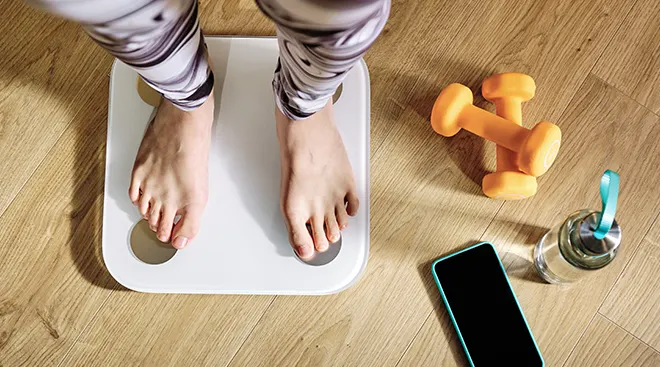8 Ways to Destress While Trying to Conceive
Trying to get pregnant should be a relaxing, blissful time in your life—emphasis on should. In reality, there are few things more anxiety-inducing than staring at a pregnancy test, hoping for a positive result but seeing a negative one for the second, third or fourth time. Worse yet is that you’ve likely been conditioned to believe that pregnancy should just happen on its own, resulting in disappointment and panic when you learn that this isn’t always the case. You’re investing your time, energy, and money in the decision to have a baby, and you may begin to feel powerless when the desired result doesn’t happen right off the bat. This lack of control can lead to anxiety, anger and—you guessed it—mounting stress, which certainly doesn’t help the situation. Ready to let go a little bit? Read ahead to learn how stress and fertility are related, and get expert tips to help you cope when you’re feeling the pressure.
Research suggests that fertility struggles can cause stress, anxiety and depression. And while it’s still unclear whether stress can actually contribute to infertility, there’s certainly a link, says Aaron Styer, MD, a reproductive endocrinologist and fertility expert, as well as the founding partner and co-medical director at CCRM Fertility Boston. When you’re stressed, your sympathetic nervous system—which is activated when you’re in fight-or-flight mode—stays constantly active and your blood pressure runs high, which can lead to hypertension and blood flow being diverted away from the reproductive organs, he says. This constant stimulation leads to high cortisol levels and adrenal output. Other research links stress to a poorer ovarian functional response to IVF treatment, as well as reduced fertilization, implantation and live birth rates.
If you have fertility issues, it’s important not to blame yourself or your stress levels, though. “The narrative that stress is the cause of fertility problems can actually be quite harmful, as blame is placed upon the victim for having fertility problems, creating guilt and often preventing the person from reaching out to a physician or fertility specialist for help,” says Georgia Witkin, PhD, head of patient services development for fertility benefits management company Progyny, and assistant professor of psychiatry and ob-gyn and reproductive sciences at Mount Sinai School of Medicine. “And while it’s true that stress can disrupt the menstrual cycle, it’s usually self-correcting, and it’s ultimately unlikely that stress alone can cause infertility.”
It’s also important to remember how quickly your body can bounce back once you work on reducing stress. “Once the stressor is relieved, the body can amazingly unwind and restore a normal equilibrium from both acute and chronic stress,” Styer says. “The parasympathetic or relaxation nervous system is activated, blood flow returns to the gut and the reproductive organs, our heart rate and blood pressure normalize, our cortisol surge subsides, and we return to rest mode. Our thyroid and adrenal glands function again, maintaining baseline metabolism, and our reproductive system is optimized for fertility potential, preconception and pregnancy.”
There are a few key tips to keep in mind when it comes to reducing stress when trying to conceive. Here are some steps to take.
Prioritize sleep
Getting between eight and nine hours of sleep per night while trying to conceive can help reduce your stress levels, Styer says, so it’s a good idea to choose shut-eye over scrolling your phone. “Sleep allows your body to recover from the mental and physical stressors of the day before,” he adds. It pays to keep up with your sleep hygiene: This includes establishing and maintaining a consistent sleep schedule, dimming your lights before bed and unplugging from electronics at night.
Pause to meditate
Meditating on a daily basis is a great way to reduce your stress levels. It doesn’t need to be a big to-do, either. Witkin recommends setting a few minutes aside each day to breathe slowly and pause after every breath, mimicking the breathing you do when you’re asleep and signaling to the brain that you’re safe. You can also find helpful meditation videos and lessons online.
Move, move, move
Research shows that moving your body can bring down stress. Regularly engaging in low-impact physical activity can be a great way to quiet your mind while trying to conceive, Styer says. You don’t need to join a gym, either: Going on a walk with a friend counts as exercise!
Do what makes you happy
Doing things that bring you joy, such as reading, dining out, cooking, traveling, listening to your favorite podcasts or watching funny movies and shows, can also act as a stress reliever. “Anything that puts a smile on your face is fair game,” Styer says. If you’re struggling to conceive and it’s affecting your mental health, your instinct might be to wallow. But now is the time to double down on joy and focus on the activities and simple pleasures that bring you peace and happiness.
Talk to your loved ones
If you’re feeling stressed, talk to your partner, friends or family about how you’re feeling so you can get the support you need. And if you don’t want to talk about it, that’s fine too. But removing yourself from social situations may make you feel even more isolated, so keep up with plans to see the loved ones who bring you joy and comfort.
Tire yourself out
Occupy your mind and body by doing something that’ll tire you out, such as painting a room, cleaning a closet, walking your dog or dancing in your bedroom. “Activities like these will also help you sleep better and improve your mood,” Witkin says. Bonus: If you’re anxious about trying to conceive, it’ll help get your mind off ovulation tracking and the like—and that can sometimes be a good thing!
Stick to a routine
Maintaining a consistent schedule can help you regain a sense of control, Witkin says, adding that increasing predictability in your life will help your stress hormones drop. Research says an effective routine can help you manage stress, which can lead to better overall mental health, as well as more time to relax and less anxiety. Plus, it can help you sleep better, eat healthier and exercise more regularly.
Seek fertility help if you need it
If you’re 35 or younger, the American College of Obstetricians and Gynecologists (ACOG) recommends seeking fertility help if you haven’t gotten pregnant after one year of having regular, unprotected sex. If you’re over 35, it’s a good idea to get a checkup after six months of trying to conceive. Those older than 40 are advised to speak with their provider right away.
As you prepare for pregnancy, it’s perfectly normal for this season in your life to bring you stress. Do your best to prioritize self-care in these smart ways—and you’ll be on your way to a happier preconception journey.
Please note: The Bump and the materials and information it contains are not intended to, and do not constitute, medical or other health advice or diagnosis and should not be used as such. You should always consult with a qualified physician or health professional about your specific circumstances.
Plus, more from The Bump:
Aaron Styer, MD, is a reproductive endocrinologist and fertility expert, as well as founding partner and co-medical director at CCRM Fertility Boston. He earned his medical degree from Vanderbilt University School of Medicine.
Georgia Witkin, PhD, is head of patient services development for fertility treatment company Progyny, and assistant professor of psychiatry and ob-gyn and reproductive sciences at Mount Sinai School of Medicine in New York City. She’s also the director of psychological services for Reproductive Medicine Associates of New York.
Dialogues in Clinical Neuroscience, The Relationship Between Stress and Infertility, 2018
Fertility and Sterility, The Concerns During Assisted Reproductive Technologies (CART) Scale and Pregnancy Outcomes, April 2004
SleepFoundation.org, Mastering Sleep Hygiene: Your Path to Quality Sleep, September 2023
Frontiers in Physiology, Regular Exercise is Associated with Emotional Resilience to Acute Stress in Healthy Adults, May 2014
Northwestern Medicine, Health Benefits of Having a Routine, December 2022
American College of Obstetricians and Gynecologists, Evaluating Infertility, August 2022
Learn how we ensure the accuracy of our content through our editorial and medical review process.
Navigate forward to interact with the calendar and select a date. Press the question mark key to get the keyboard shortcuts for changing dates.


















































